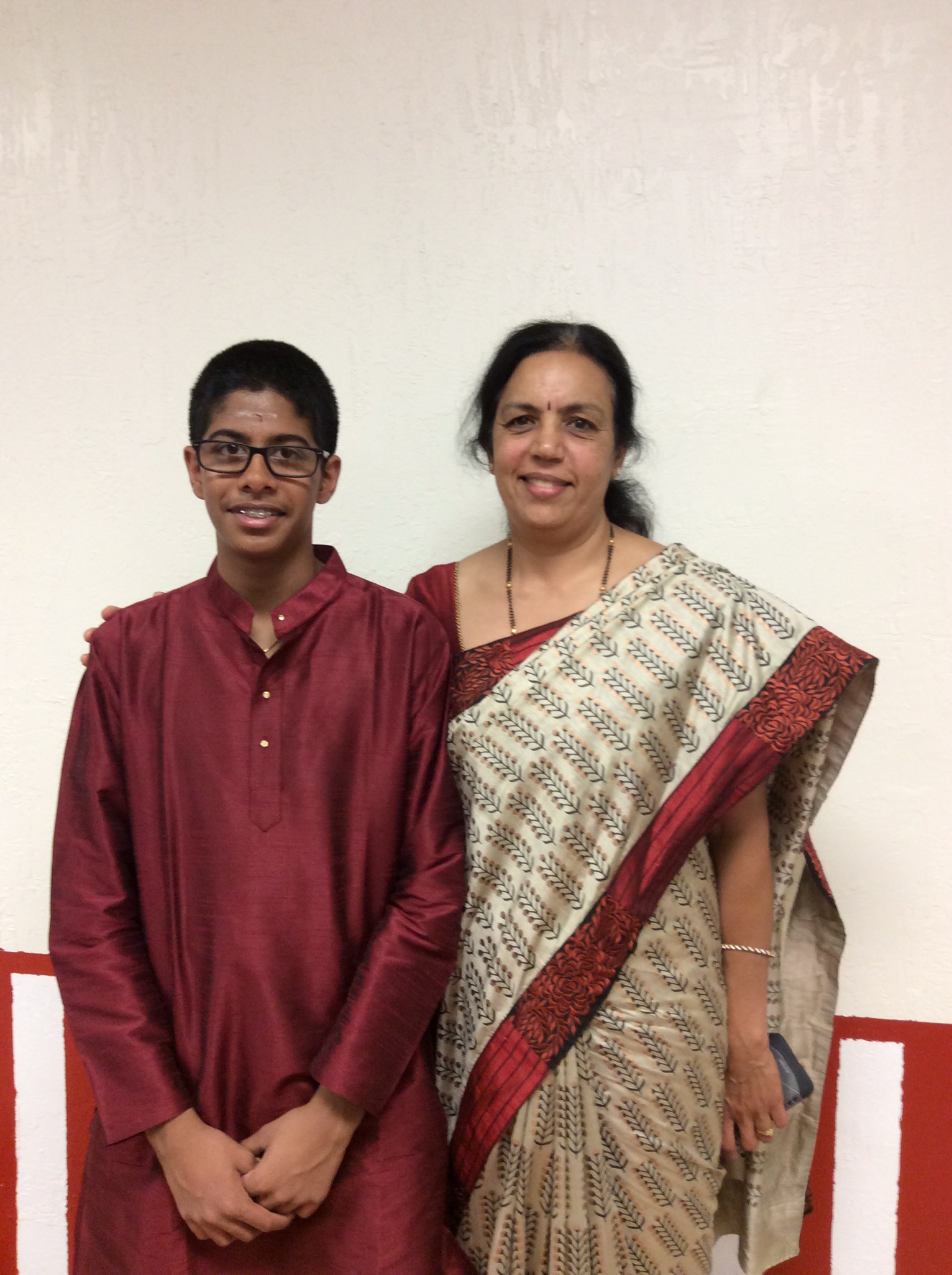
Jayanthi Umesh
Carnatic music originated in South India from the ancient classical music system that is traced back to the Vedic age. Carnatic music is characterized by a well-structured system of swaras (successive steps/notes of an octave), raagas (melodic modes), kriti (musical compositions with lyrics). A unique feature is the concept of manohdarma (extempore improvisiation and rendering of raagas and kritis on stage). Typical concerts are 3+ hours, with a vocalist as a central performer, accompanied by a violinist and percussionist at a minimum.
Jayanthi Umesh began her training at the age of six years old, in Bengaluru, India. Her training was a fortunate blessing in that she worked with the late Vidushi (female Maestro) M. Janaki and later under the tutelage of the well-known exponent of classical Indian music the late Vidushi Sugandha Raman. The latter of whom paved a path for women musicians in a time the field was only fit for men. Umesh received advance training from Professor Suguna Varadachari of Madras University in Chennai, India as well as workshops and trainings sessions by Dr. M. Balamuralikrishna and the late Vidwan R. K. Srikintan – two legends of Carnatic music of our times. Umesh has performed in several music concerts at Bangalore Gayana Samaja, Cleveland Thyagaraja Aradhane, Hindu temples in Sunnyvale, Livermore and Malibu California, and sponsored events of the South Indian Fine Arts. She is an avid master teaching at her school, Mahatee Music Academy that imparts Carnatic music education.
As a master artist in ACTA’s Apprenticeship Program in 2017, Jayanthi Umesh will be mentoring Kaushik Hariharan to build upon his foundational skill of Carnatic vocals. They will focus extensively on developing his understanding of the intricacies and complex techniques of improvisation as well as delve into the depths of composed music.

